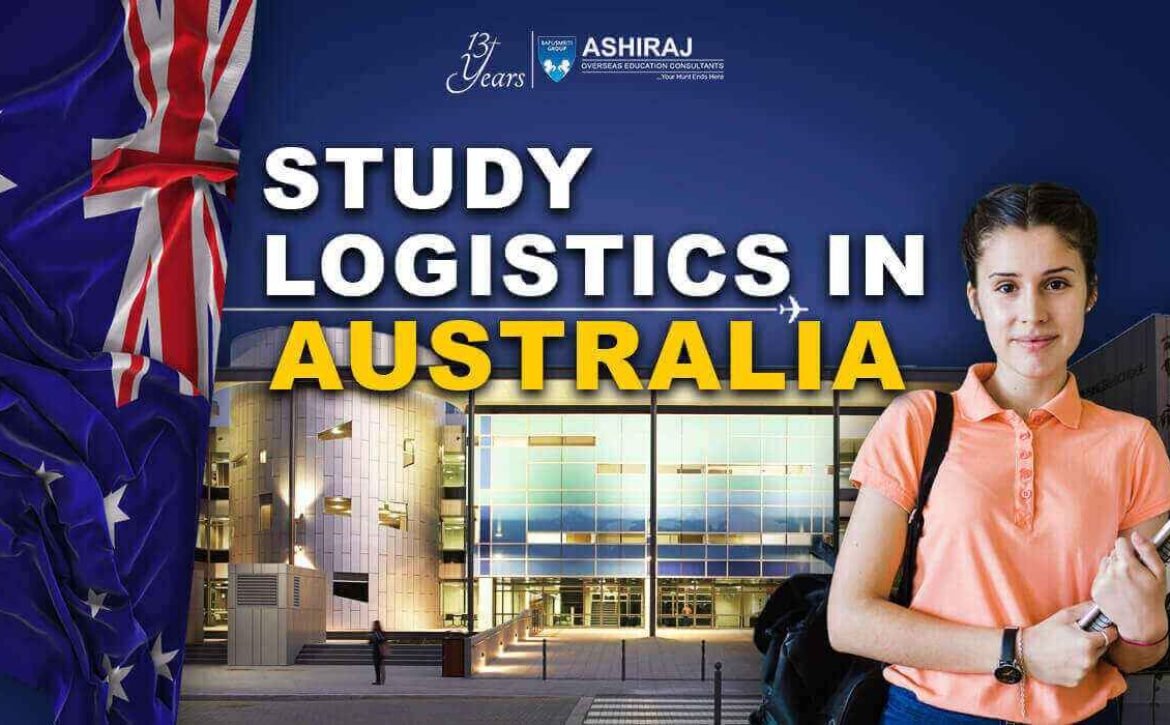
Logistics in Australia
Welcome to the dynamic world of Logistics in Australia, where the vast expanse of this continent-nation poses unique challenges and opportunities for the efficient movement of goods and services. Australia’s logistics landscape is characterized by its diverse geography, spanning deserts, mountains, and coastal regions, making the optimization of supply chains a fascinating puzzle to solve. From the bustling ports of Sydney and Melbourne to the remote Outback, the logistics industry in Australia plays a pivotal role in connecting businesses and consumers across this expansive land.
Logistics in Australia is a multifaceted domain that encompasses transportation, warehousing, distribution, and supply chain management. The strategic positioning of major cities, the significance of maritime trade, and the ever-evolving technology landscape contribute to the complexity of logistics operations in the country. As we delve into the intricacies of Logistics in Australia, we will explore the innovations, challenges, and the crucial role it plays in supporting the thriving economy of this unique and diverse nation.
Why to Study Logistics in Australia?
- Global Significance: Australia’s strategic location in the Asia-Pacific region positions it as a crucial player in global trade. Studying logistics in Australia provides insights into international supply chains and exposes students to diverse industry practices.
- Diverse Landscape, Diverse Learning: The vast and varied geography of Australia presents unique challenges for logistics professionals. From urban centers to remote areas, students gain hands-on experience in managing logistics across different terrains.
- Innovation and Technology: Australia is at the forefront of adopting cutting-edge technologies in logistics. Studying here allows students to explore advancements such as automation, artificial intelligence, and sustainable practices, enhancing their skills for the future.
- Robust Education System: Australian universities are renowned for their quality education and research in logistics and supply chain management. The programs are designed to equip students with both theoretical knowledge and practical skills, ensuring they are well-prepared for the industry.
- Thriving Job Market: With a growing economy and a strong focus on trade, logistics professionals are in high demand in Australia. Studying logistics here opens up diverse career opportunities, from working in major ports to managing supply chains for multinational corporations.
In conclusion, choosing to study logistics in Australia not only provides a world-class education but also exposes students to a vibrant industry landscape with global relevance. The blend of theoretical knowledge and practical experience makes it an ideal destination for aspiring logistics professionals.
Top Universities to Study Logistics in Australia
Rank | University | QS World University Ranking 2023 | Type of University | Average Annual Fees (AUD) | Programs Offered |
1 | University of Melbourne | 1 | Research | $30,000 – $45,000 | Bachelor/Master in Logistics and Supply Chain Management |
2 | Australian National University | 2 | Research | $28,000 – $40,000 | Master of Logistics and Global Supply Chain Management |
3 | University of Sydney | 3 | Research | $35,000 – $50,000 | Bachelor/Master of International Logistics and Business |
4 | University of Queensland | 4 | Research | $32,000 – $46,000 | Bachelor/Master in Logistics and Operations Management |
5 | University of New South Wales | 5 | Research | $30,000 – $48,000 | Master of Logistics and Supply Chain Management |
When considering pursuing a degree in Logistics in Australia, it is essential to explore the top universities offering programs in this field. The QS World University Rankings 2023 highlights the leading institutions, with the University of Melbourne securing the top spot. These universities, primarily research-focused, offer a range of programs in Logistics and Supply Chain Management. The average annual fees vary across institutions, providing prospective students with options that suit their budget. With a strong emphasis on research and industry relevance, these universities prepare students for impactful careers in Logistics in Australia.
Course Curriculum for Logistics in Australia
- Core Concepts: Logistics programs in Australia cover fundamental concepts, introducing students to the principles of supply chain management, transportation, and warehousing.
- Global Supply Chain Management: With a focus on the interconnectedness of global markets, courses delve into international logistics, trade regulations, and strategies for effective global supply chain management.
- Technology Integration: Recognizing the importance of technology, the curriculum includes modules on logistics technologies, data analytics, and the implementation of software solutions to optimize supply chain processes.
- Sustainability in Logistics: Given the growing emphasis on sustainable practices, courses often explore eco-friendly logistics solutions, green supply chain management, and the role of logistics in reducing environmental impact.
- Industry Applications: Practical application is a key component, with case studies, internships, and industry projects providing hands-on experience. Students gain insights into real-world logistics challenges and solutions.
- Logistics in Australia Perspective: Incorporating a national perspective, courses often highlight the unique logistics challenges and opportunities in Australia, addressing factors such as the vast geography, diverse industries, and regional trade dynamics.
The course curriculum of Logistics in Australia is designed to equip students with a holistic understanding of the field, blending theoretical knowledge with practical skills and a focus on the specific nuances of logistics in the Australian context. This comprehensive approach prepares graduates for successful careers in the dynamic world of Logistics in Australia.
Eligibility Criteria & Admission Requirements for Logistics in Australia
- Language Proficiency:
Applicants are required to demonstrate English language proficiency through either IELTS or TOEFL scores.
IELTS: Minimum score of 6.5 overall, with no band below 6.0.
TOEFL: Minimum score of 79 (Internet-based).
- Academic Qualifications:
A bachelor’s degree in a related field is typically required.
Relevant academic certificates showcasing prior education achievements.
- Standardized Tests:
Depending on the institution, applicants may need to submit GRE or GMAT scores.
GRE: Minimum scores vary but typically range from 300 to 320.
GMAT: Minimum scores vary but are generally around 550 to 600.
- Work Experience:
Some programs may require relevant work experience, especially for advanced degrees.
Previous work experience in logistics or related fields is considered an asset.
- Passport & Student Visa:
Valid passport is a prerequisite for international students.
Successful application for a student visa, obtained through the Australian Department of Home Affairs.
Meeting these eligibility criteria ensures that candidates are well-prepared for the academic rigor of Logistics in Australia programs. The combination of language proficiency, academic qualifications, standardized test scores, and practical experience contributes to a holistic assessment of applicants, facilitating a diverse and capable cohort in the field of Logistics in Australia.
Documents Required for Studying Logistics in Australia
- Passport:
A valid passport is a fundamental document for international students seeking to study Logistics in Australia.
- Letters of Recommendation (LOR):
Typically, two letters of recommendation from academic or professional references are required.
- Statement of Purpose (SOP):
An SOP outlining the candidate’s motivations, career goals, and reasons for pursuing Logistics in Australia is a crucial document.
- Curriculum Vitae (CV):
A comprehensive CV detailing academic achievements, work experience, and relevant skills.
- Official High School Transcripts:
Submission of official transcripts from high school or equivalent education level.
- Educational Certificates:
Copies of academic certificates demonstrating the completion of previous degrees or qualifications.
- Work Experience Certificate:
If applicable, a certificate verifying relevant work experience in logistics or related fields.
- Proof of Financial Resources:
Providing evidence of financial capability to cover tuition fees, living expenses, and other associated costs.
Ensuring the submission of these documents is essential for a smooth application process and demonstrates the candidate’s readiness for academic pursuits in the field of Logistics in Australia. Adhering to the documentation requirements is a critical step in securing admission to reputable institutions and embarking on a successful academic journey in Logistics in Australia.
Admission Process for Logistics in Australia
- Research and Choose Institutions:
Explore universities offering Logistics programs in Australia, considering factors like reputation, faculty, and program structure.
- Check Eligibility:
Review the eligibility criteria, including language proficiency, academic qualifications, and standardized test requirements for Logistics in Australia programs.
- Prepare Required Documents:
Gather essential documents, such as passport, LORs, SOP, CV, official transcripts, educational certificates, work experience certificates, and proof of financial resources.
- Language Proficiency Test:
Take either IELTS or TOEFL and ensure the scores meet the specified requirements for Logistics in Australia programs.
- Standardized Tests (if applicable):
Prepare and take GRE or GMAT, if required by the chosen institution for Logistics in Australia programs.
- Submit Online Application:
Complete the online application form for the selected university, providing accurate and detailed information.
- Wait for Admission Decision:
Wait for the university to review the application. Admission decisions may take a few weeks.
- Receive Offer Letter:
Upon acceptance, the university will issue an offer letter outlining the terms and conditions of admission for Logistics in Australia.
- Apply for Student Visa:
Initiate the student visa application process through the Australian Department of Home Affairs.
- Plan Arrival and Orientation:
Once the visa is approved, plan for arrival, attend orientation sessions and prepare for the commencement of Logistics in Australia studies.
Following these steps meticulously ensures a smooth admission process and sets the foundation for a successful academic journey in Logistics in Australia.
“Education is the most powerful weapon which you can use to change the world.”
Nelson Mandela
Cost of Logistics Course in Australia
- Tuition Fees:
Logistics in Australia programs’ tuition fees vary across universities. On average, international students can expect to pay between AUD 25,000 to AUD 40,000 per year for undergraduate programs and AUD 30,000 to AUD 50,000 for postgraduate programs.
- Living Expenses:
The cost of living in Australia depends on the city and lifestyle. On average, students should budget approximately AUD 20,000 to AUD 25,000 per year for accommodation, food, transport, and other personal expenses.
- Health Insurance:
International students are required to have Overseas Student Health Cover (OSHC), costing around AUD 500 to AUD 700 per year, depending on the provider.
- Books and Supplies:
Budget for textbooks, stationery, and other study materials, which can amount to approximately AUD 500 to AUD 1,000 per year.
- Miscellaneous Expenses:
Consider additional costs such as internet, phone bills, and recreational activities, which may total around AUD 2,000 to AUD 3,000 per year.
- Part-Time Work Opportunities:
International students are allowed to work part-time during their studies. Factoring in potential earnings can offset some living expenses.
Understanding the cost of studying Logistics in Australia helps students plan their budget effectively and make informed decisions about their academic journey in this dynamic field.
Scholarships for Logistics Courses in Australia
Scholarship Name | Eligibility Criteria | Amount (AUD) | Application Deadline |
Australia Awards Scholarships | Open to students from eligible countries, based on academic merit and potential. | Full tuition, living expenses, and health coverage. | Varies by country |
Destination Australia Scholarship | Available to international students undertaking a logistics program in regional Australia. | Up to $15,000 per year | Rolling basis, check with institutions |
Endeavour Leadership Program | For high-performing students, researchers, and professionals to study or work abroad. | Varies based on the program. | Annually around June |
University-specific Scholarships | Various scholarships offered by individual universities for academic excellence. | Amounts vary by institution. | Check university websites |
Australia APEC Women in Research Fellowship | For female researchers from APEC economies pursuing logistics research. | Up to $15,000 | Annually around May |
Securing scholarships for Logistics in Australia can significantly alleviate the financial burden on students. It is advisable to check the specific eligibility criteria, the amount awarded, and application deadlines for each scholarship opportunity. Additionally, exploring university-specific scholarships and government-funded programs enhances the chances of receiving financial support for pursuing studies in Logistics in Australia.
Career Opportunities After Logistics in Australia
Job Profile | Description and Requirements | Average Salary (AUD) |
Logistics Manager | Oversee supply chain processes, manage logistics teams and optimize distribution networks. | $90,000 – $120,000 |
Supply Chain Analyst | Analyze data to improve supply chain efficiency, identify trends, and implement cost-effective solutions. | $70,000 – $90,000 |
Warehouse Operations Manager | Coordinate warehouse activities, manage inventory, and ensure efficient logistics operations. | $80,000 – $110,000 |
Transportation Coordinator | Plan and coordinate transportation activities, manage logistics providers, and optimize delivery routes. | $65,000 – $85,000 |
International Trade Specialist | Facilitate global trade, ensure compliance with regulations, and optimize international logistics. | $80,000 – $100,000 |
Embarking on a career in Logistics in Australia opens doors to diverse job opportunities with competitive salaries. As a Logistics Manager, one can earn between $90,000 to $120,000 annually, while Supply Chain Analysts typically earn in the range of $70,000 to $90,000. Warehouse Operations Managers and Transportation Coordinators earn between $80,000 to $110,000 and $65,000 to $85,000, respectively. For those inclined towards international logistics, an International Trade Specialist can expect to earn between $80,000 to $100,000. These lucrative career options, coupled with the growing demand for logistics professionals in Australia, make pursuing a career in Logistics in Australia both rewarding and promising.
Frequently Asked Questions About Logistics in Australia
Logistics in Australia has a broad scope, with opportunities in supply chain management, transportation, and warehouse operations across various industries.
Yes, several scholarships are available, including Australia Awards, university-specific scholarships, and industry-sponsored programs.
Eligibility criteria typically include academic qualifications, language proficiency (IELTS or TOEFL), and, in some cases, standardized test scores (GRE or GMAT).
Yes, international students are generally allowed to work part-time during their studies, helping them gain valuable work experience.
Tuition fees vary, but on average, students can expect to pay between AUD 25,000 to AUD 50,000 per year, depending on the level of study.
Career opportunities include roles such as Logistics Manager, Supply Chain Analyst, Warehouse Operations Manager, Transportation Coordinator, and International Trade Specialist.
After receiving an offer of admission, applicants can apply for a student visa through the Australian Department of Home Affairs.
Yes, many logistics programs in Australia include modules on sustainable logistics practices and eco-friendly supply chain management.
Most programs require a minimum IELTS score of 6.5 overall, with no band below 6.0, or an equivalent TOEFL score.
Yes, Australia offers continuous professional development opportunities through industry events, workshops, and networking opportunities for logistics professionals.




